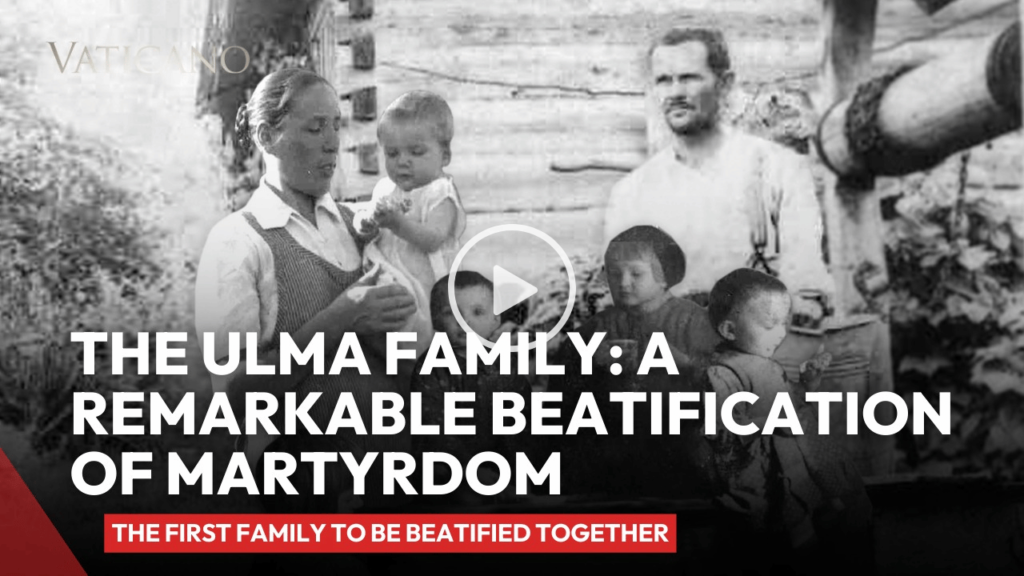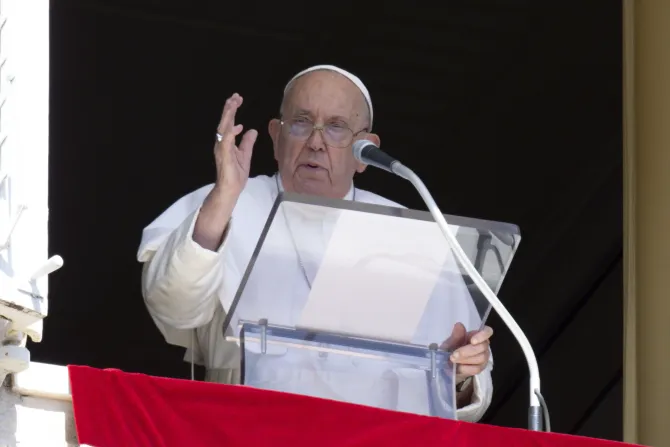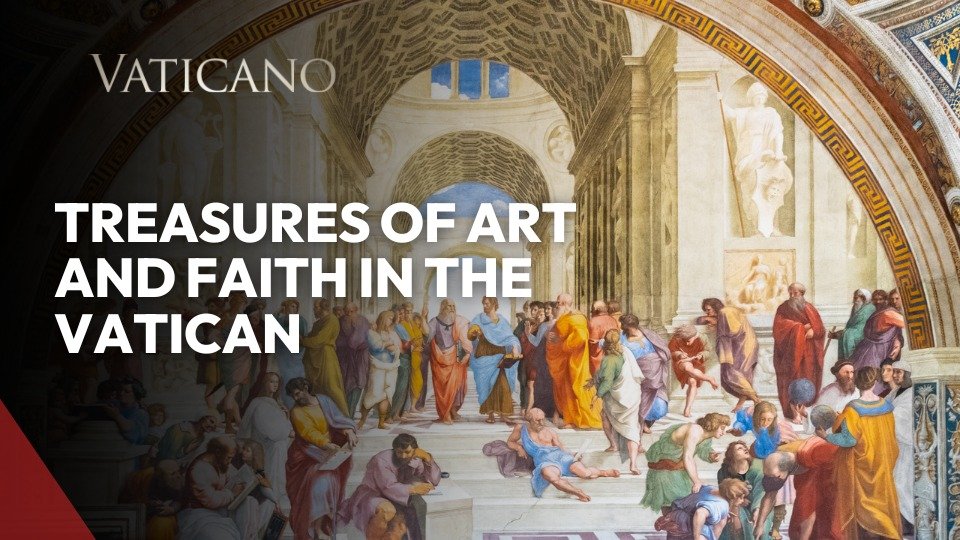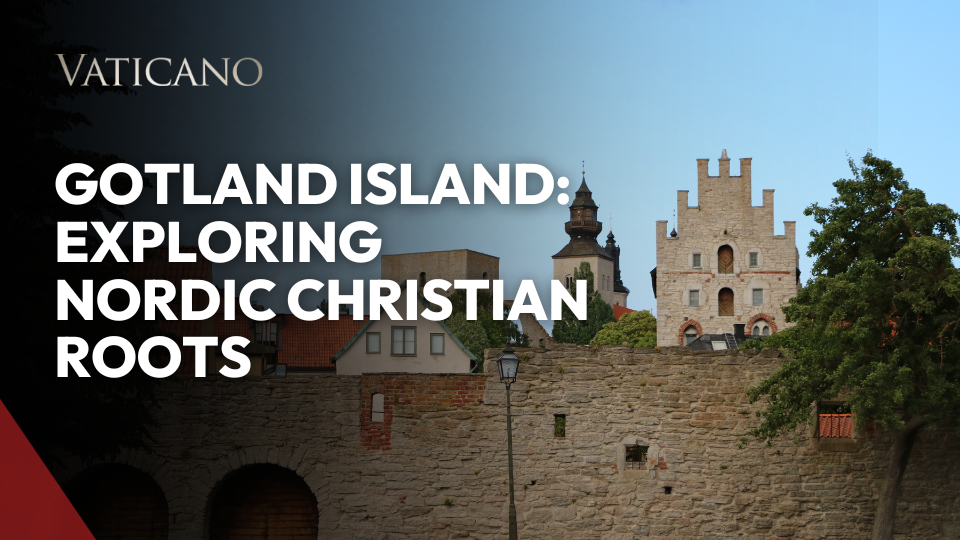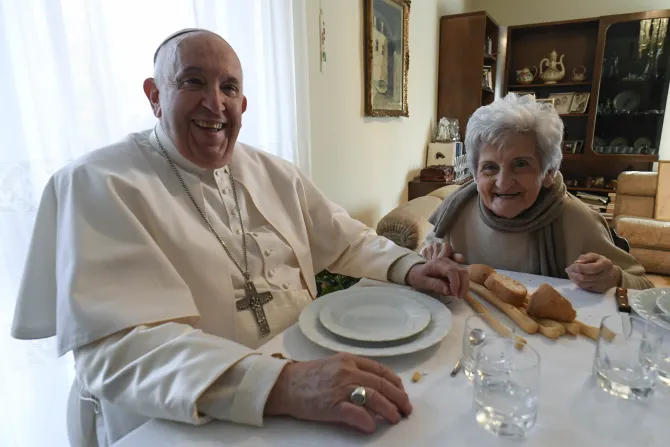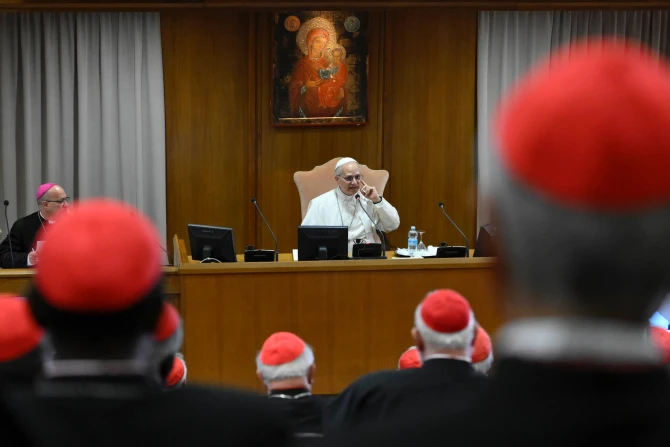Matthew Santucci spoke with Fr. Witold Burda, the Postulator of the beatification cause of the Ulma Family, ahead of their beatification on September 10, 2023. Fr. Burda spoke about the story of the Ulma family, the centrality of the faith in their life and his allowed them to not only grow in holiness, but to defend the gift of life.
Matthew Santucci: Good morning, Fr. Burda, it is a pleasure to have you with us today. I wanted to ask if you can start by giving us a brief overview of the family, and how their story has shaped their cause of beatification?
Fr. Witold Burda: Good morning. First of all, I thank you for the opportunity to tell a little about the story of this extraordinary family from South Eastern Poland. Josef and Wiktoria were born in Markova and both grew up in Catholic families. They received a beautiful, profound Catholic education; they were very attached to parish life. We have a beautiful testimony from Josef’s family, where eyewitnesses recount how they all prayed together and how the parents participated in the sacramental life of their children. So, since he was a child, Josef, by following the example of his parents, learned how important it is, how beautiful it is, to live in friendship with Christ and also to experience the beauty of life lived in the community of believers. His future wife, Wiktoria, also received a profound Catholic education. But, at the same time Wiktoria also learned, especially from her parents, how important it is to be open to the needs and requirements of other people. For example, there was a tradition in her house that no poor person left home hungry without receiving help.
Josef and Wiktoria were very hard-working people; they were very honest, and very close to the Church. They married on July 7, 1935. Before the outbreak of the Second World War, they welcomed their first three children Stanisława, Barbara, and Władysław. Then after the outbreak of the Second World War they received – always with great love and gratitude to the lord, giver of life – three more children. On the day of their death as martyrs, Wiktoria was expecting the seventh child; it was already a very advanced pregnancy.
There is a beautiful testimony from the godmother of the third child who said that for a week after the birth of that child she lived in the Ulma house and saw Josef – because Wiktoria was still weak after the birth of the child – who knelt down with her children every evening and said prayers. So that type of education, on the part of parents, is the best way to transmit the most important values, including the most important, the gift of faith in Christ. Their life lived in mutual respect and in the climate of faith.
It was in this climate that they also knew how to understand and see the needs of other people. They found themselves faced with this great test when eight Jews, persecuted by the Nazis, knocked on their door and they had to decide which side to take. The Ulma family put itself on the side of the persecuted people and thus defending their dignity, they once again confirmed the value of life, the dignity of every person regardless of sex and education, because each of us has been made in the image and likeness of God.
Matthew Santucci: I wanted to ask How did you personally get involved with their cause for beatification and what does it mean for you on a personal level?
Fr. Witold Burda: At the end of 2016 my archbishop, His Excellency Adam Szal, asked me if I could write something about the Ulma family. At first I thought it would be a short article, but a few days later Monsignor Adam explained to me in greater detail what it was about. He asked me to come here to Rome to participate in the postulators’ course organized by the Dicastery for the Causes of Saints, and with that serving as the apostle of this cause. The Lord immediately made it clear for me what a great gift it was, and in this way I lived every day of the postulatory course as well as the whole journey of preparing the positio, which concerns the martyrdom of the entire Ulma family.
Then there was the second phase of the cause of beatification of the Ulma family, when the positio was evaluated by three commissions of the Dicastery for the Causes of Saints. This gift of working to do this service as a postulator, I use the term ‘service’ as this gift of working on the cause of the beatification of the Ulma Family has been a great opportunity to deepen my personal spiritual friendship with the blesseds. It helps me understand how important, and how beautiful, it is to live every day according to the Gospel, which is not a burden but an opportunity to grow, to become more available, more open, and more mature. At the same time, as much as I am able, obviously always helped by the Lord, I can share my friendship with all the people to whom I can give my testimony.
Matthew Santucci: And so, with this current meeting that you’ve had with the Dicastery for the Causes of Saints, have there been any other developments with their cause? And what has their reception been?
Fr. Witold Burda: When I began to participate in the course of postulators I noticed a great interest and great care on the part of the current Dicastery for the Causes of Saints and I am truly grateful. The officials of the Dicastery for the Cause of Saints, starting from the Cardinal Prefect, as well as with other people that I met, they spoke even in a private way about the life of the martyrdom of the Ulma family, and they always did it with much attention.
For example, as the current Cardinal Prefect of the Dicastery for the Causes of Saints describes, martyrdom in general, and obviously making particular reference to the martyrdom of the Ulma family, as the culmination of sanctity. For me it is a definition, on the one hand simple, but at the same time it perfectly expresses this concept because every martyr imitates Christ in the perfect way, because even from the physical point of view, he participates in the passion and death and then, in the end, at the glory and resurrection of Jesus Christ. Therefore, he physically participates in the work of salvation carried out by the Lord himself. For this reason, here too this attention, this concern on the part of the Dicastery for the Causes of Saints has always been a great support for me and also a confirmation that as a postulator I must commit myself, and involve myself, to promote this cause.
Matthew Santucci: Can you talk about how their beatification dovetails with the pro-life movement and pro-life values?
Fr. Witold Burda: On the one hand we are saddened by the current situation in the Western world, but we as Christians, as believers in Christ – who is the winner of death, the source of life, joy, and hope – in this dynamic fits perfectly the life and martyrdom of the Ulma family. They welcomed the life of their children and they defended the life of the people persecuted by the German occupier, these eight Jews representing all the Jewish people persecuted during the Second World War. Then there is the fact that the last child that Wiktoria carried in her womb at the moment of their martyrdom wanted to be born. We have this very strong, moving testimony that a few days after their death, some men, inhabitants of Markowa, came to the place where they were murdered by the German gendarmerie carrying four wooden coffins to place their bodies. When they dug this temporary tomb one of the witnesses stated that from Wiktoria’s womb he realized that she was in an advanced stage of pregnancy and saw the baby’s head and chest coming out of her womb.
To this day, I remember the words of His Eminence Cardinal Angela Amato, prefect emeritus of the Dicastery for the Causes of Saints, that move me and make me reflect. Five years ago, right here in Rome, he opened an exhibition dedicated to the Ulma family and he said look, ‘this child wanted to be born, he wanted to live’. Every person wants to live. I think it is particularly important, even beautiful, to use this positive argument, presenting life as a gift, as an opportunity, chance, grace, as a possibility. It is not a burden because I think that here too, especially for young people, for young parents, a child is presented as something that even limits my freedom, because then I have to wake up at night, I have to make a lot of sacrifices, but this is such a superficial aspect.
Matthew Santucci: In December 2022 the Holy Father signed a decree recognizing their martyrdom. So, for the first time in the history of the Church, an entire family will be beatified and also the first time in the history of the Church that an unborn child will be beatified. Can you speak a bit about the importance of that, both for the Church and their cause?
Fr. Witold Burda: In fact, this is one of the more original aspects of this beatification, that this unborn child will be proclaimed Blessed as a martyr. Therefore, even the child who was still in the mother’s womb, thus without a name, born neither naturally nor in the sub-natural way through the sacrament of baptism, rose to this very pinnacle of holiness. In any case the Church, with this gesture and the decision of the Holy Father, continues to repeat that life, from conception to natural death, is holy. I really hope that it awakens our conscience so that we regain this certainty. Life is a gift, a gift that enriches me, that helps me grow. When I welcome this gift, I also help this new life, so that it can grow and so we enrich each other. There is this beautiful dynamic and I think that this decision by Pope Francis to also beatify this child, who was still in his mother’s womb, has a strong message here that first of all reminds us of this fundamental truth: the sanctity and dignity of every human person from conception until natural death.
Sign up here: https://mailchi.mp/ewtn/vatican

